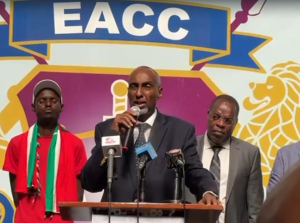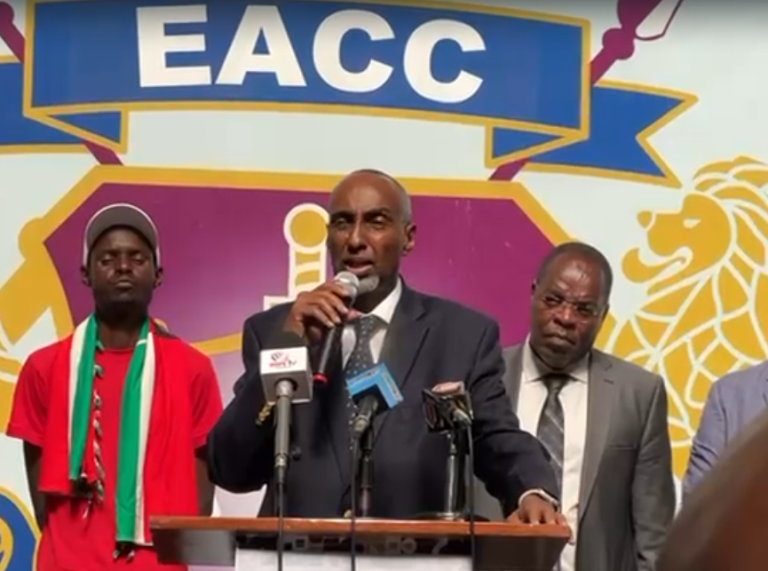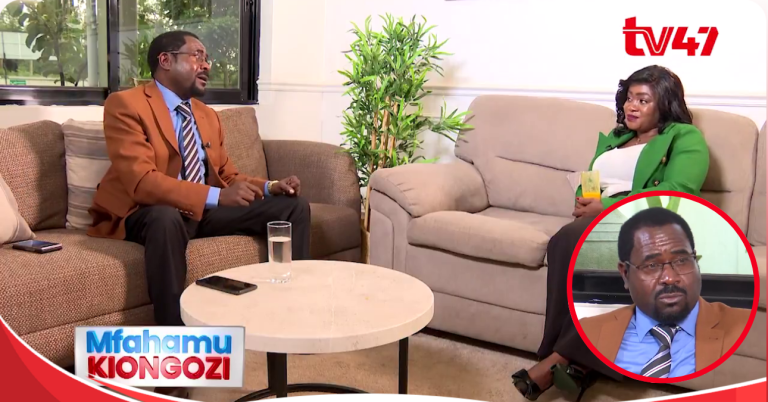A former Jubilee senatorial candidate has challenged electronic results transition in court.
Former Bungoma senatorial candidate John Mukhwana has filed the cased against the Attorney General at the High Court in Nairobi.
ACCURACY
Dr Mukhwana claims an ordinary voter, commonly referred to as Wanjiku, lacks knowledge of terms such as electronically operating systems, logs, servers, firewalls, clouds and read-only access.
According to Dr Mukhwana, Wanjiku cannot therefore independently examine and verify the accuracy of electronically transmitted results.
He argues the country still has low literacy levels as well as access to ICT equipment.
Through lawyer Kioko Kilukumi, he alleges that even the Kenya Integrated Management Systems (KIEMS) remain in possession of a foreign company, Safran, which is French-based and not the IEBC.
TRANSPARENCY
In the case documents, Dr Mukhwana argues that KIEMS is not simple, accurate, verifiable, secure, accountable and transparent yet elections are public in nature.
“An election procedure in which the voter cannot reliably comprehend whether his or her vote is transmitted without falsification and is included in the ascertainment of the election result, excludes central elements of the election procedure from public monitoring,” said Mr Kilukumi.
He said the public must be able to monitor the entire process from registration to declaration of results yet the electronic transmission of election results has shut them out.
He also alleged that a voter must be able to verify without a more detailed knowledge of computers whether his or her vote as cast is transmitted truthfully.
KIEMS
He further alleged that each citizen must be able to comprehend and verify central steps in the elections reliably and without any special prior technical knowledge.
“It is through democratic elections that the people exercise their sovereign power to democratically elect representatives, to whom they delegate their sovereign power exercisable in accordance with the Constitution,” said Mr Kilukumi.
Dr Mukhwana faulted the use of KIEMs kits, saying it is nearly impossible for one to check their trustworthiness.
He pointed out that the said kits pose the danger of elections being influenced or manipulated through the manufacturers of the software in the device, by consultants, internal as well as external persons or hackers.
GERMANY
“Electronic transmission of results is susceptible to manipulation with relatively little effort from techno-savvy individuals and this could consist providing a preset percentage in the final result for a specific candidate prior to commencement of the elections without this coming to light,” he said.
He also pointed out that a court in Germany, a country which has 99 percent literacy level, ruled in 2009 that the elections as well as results transmission be conducted manually due to such dangers hence Kenya should adopt such a policy.
Kenya’s literacy level as at 2015 stood at 78 percent in the National ICT survey Report.
In the two-year-old survey, only 9.1 percent of the country’s population could access a computer and out of this 7.2 percent could freely use internet connectivity.
He specifically wants sections of the Elections Act that instruct the IEBC to electronically transmit presidential election results from polling stations to the constituency and national tallying centres, as well as general usage of technology in polls, to be declared unconstitutional.
Dr Mukhwana lost the Senate race to Ford-Kenya leader Moses Wetang’ula in the August 8 General Election.









